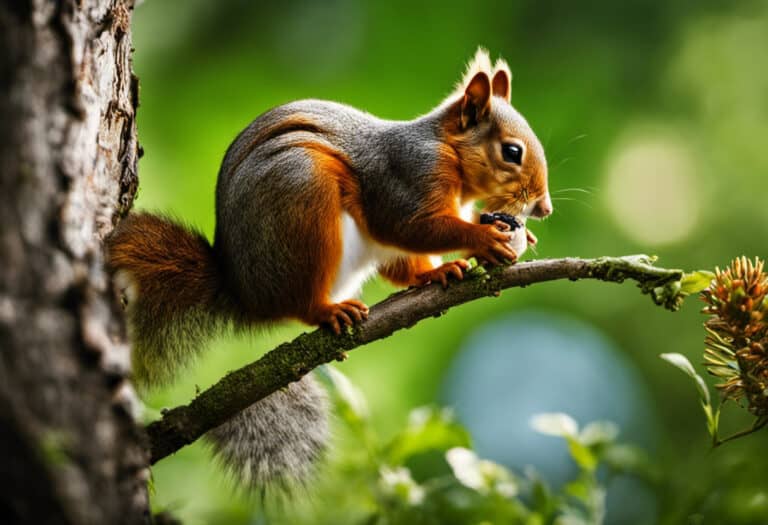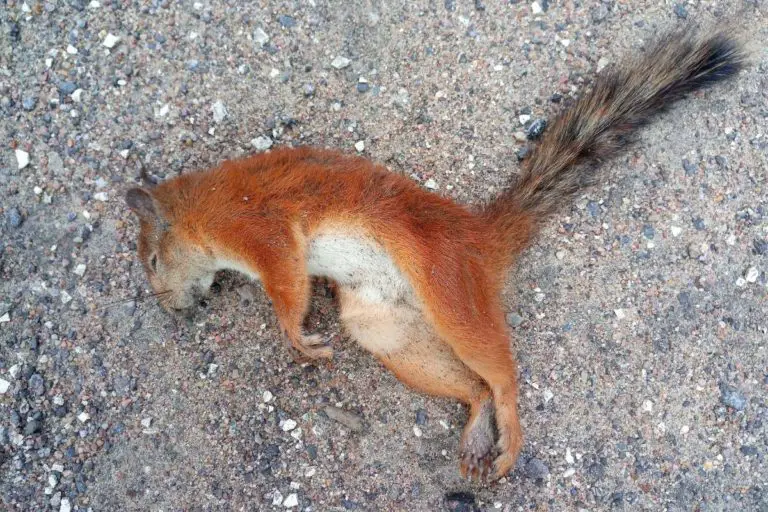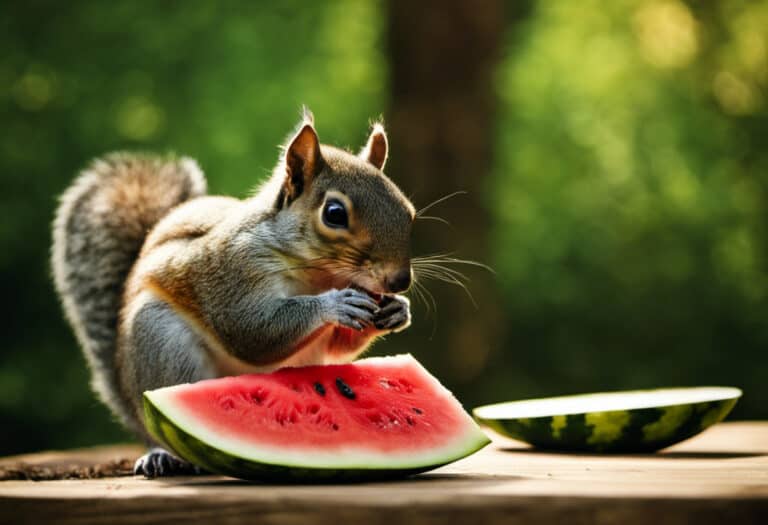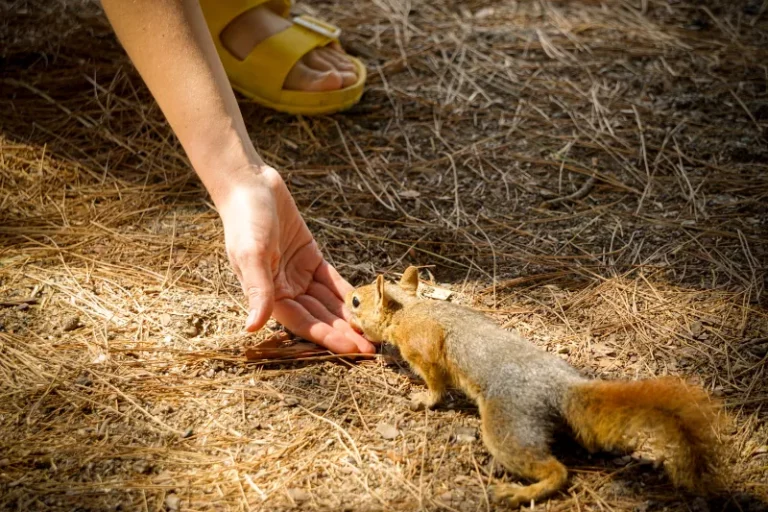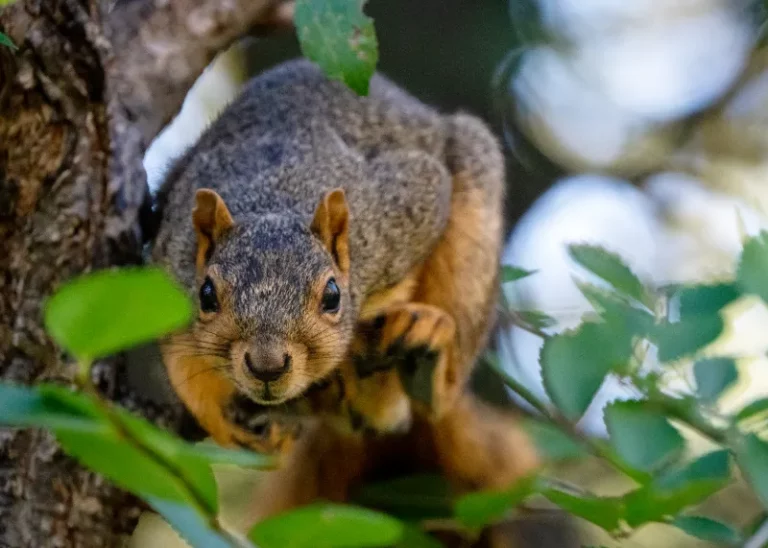Do Squirrel Eat Tomatoes?
Are you curious about what squirrels like to eat? If you’ve ever wondered if squirrels eat tomatoes, this blog post is for you!
We’ll explore the answer to this question and more as we dive into the dietary habits of these furry critters.
Do Squirrels Eat Tomatoes?
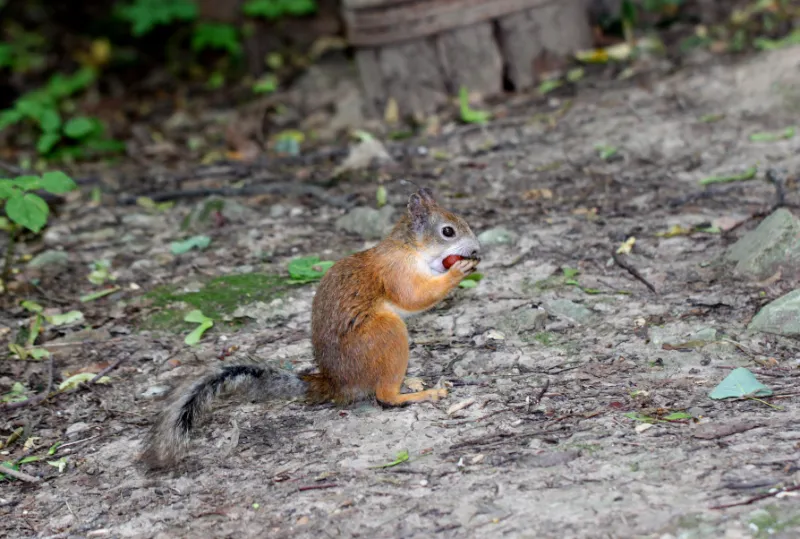
The answer is yes! Squirrels eat tomatoes off the vine and the ground and often prefer ripe, juicy ones.
They may also take a few bites out of several tomatoes, but they generally only consume part of one in one sitting.
Different species of squirrels may have different preferences for types of tomatoes, and some may be more likely to take bites out of them than others.
Knowing about the nutritional habits of squirrels can help you better understand how tomatoes fit into their diets and the potential impact on their health.
It’s also important to consider safety when feeding tomatoes to squirrels, as there are certain precautions to take.
An Overview of Squirrels’ Nutritional Habits
As you may know, squirrels are omnivores that eat plants and animals. They must maintain a healthy diet with all the essential nutrients their bodies need.
So, what exactly does a squirrel eat? Well, it depends on the species of squirrel.
Generally, squirrels feed on nuts, seeds, fruits, vegetables, fungi, and insects.
Tomatoes are one of the vegetables that can be part of a squirrel’s diet.
Identifying Squirrel Species that May Eat Tomatoes
Identifying the type of squirrel that may be eating your tomatoes is critical to ensuring you have the right solution.
Different species of squirrels have other diets and preferences regarding food, so it is essential to know what kind of squirrels you are dealing with.
There are a few common species of squirrels in North America that may eat tomatoes, such as the Eastern gray squirrel, the American red squirrel, and the fox squirrel.
It is also important to note that some species may prefer certain types of tomatoes over others.
Knowing what kinds of tomatoes these species like can help you determine the best way to protect your plants from these pesky critters.
How Tomatoes Fit Into Squirrels’ Diets
Squirrels are omnivorous creatures known to eat a wide variety of foods. Tomatoes can fit into the diet of a squirrel in several ways.
Squirrels may eat tomatoes off the vine and tomatoes that have fallen to the ground.
They may also take bites out of ripe tomatoes while still on the plant. Tomatoes can provide squirrels with essential vitamins and minerals, such as vitamin C, potassium, and magnesium.
However, it is crucial to consider the potential health risks associated with consuming too many tomatoes, such as digestive issues.
It is also important to note that some squirrel species are more likely to eat tomatoes than others.
Different Types of Tomatoes that Squirrels May consume
Squirrels are not picky eaters, and they will happily consume a variety of tomatoes. Ripe, juicy tomatoes are a favorite, but they will also eat unripe tomatoes.
Depending on the species of squirrels in your area, they may even enjoy cherry tomatoes or heirloom varieties.
If you are looking to supplement the squirrels’ diets, consider offering them yellow or orange tomatoes, as these are often sweeter and more appealing to them.
Additionally, while they may not be the preferred option, squirrels can eat canned tomatoes cooked down into a sauce.
This is an easy way to provide additional nutrition for these animals.
The Impact of Tomatoes on a Squirrel’s Health
Tomatoes are an important part of a squirrel’s diet and provide them with essential vitamins and nutrients.
Eating tomatoes can help a squirrel stay healthy and protect them from certain diseases. Tomatoes can also boost a squirrel’s immune system, aid digestion, and increase energy levels.
However, it is essential to note that too much tomato can harm a squirrel’s health. Over-eating tomatoes can lead to weight gain, digestive problems, and other health issues.
Therefore, feeding your squirrel tomatoes in moderation is vital to ensure their optimal health.
Safety Considerations When Feeding Tomatoes to Squirrels
Regarding safety considerations when feeding tomatoes to squirrels, it is essential to remember that tomatoes can be potentially hazardous.
It is crucial to ensure that the tomatoes are ripe and the skins have been removed, as the skins can be problematic for squirrels to digest.
It is also essential to avoid overfeeding tomatoes, as they are high in sugar, which can lead to obesity and other health problems.
Furthermore, it is vital to monitor the squirrels closely when feeding them tomatoes, as they could pose a choking hazard if eaten too quickly.
Finally, it is best to avoid feeding wild squirrels directly by hand, as this could lead to aggressive behavior or even the transmission of diseases.
Do Squirrels Take Bites Out of Tomatoes?
Yes, squirrels do take bites out of tomatoes! In fact, not only do they take bites out of ripe tomatoes, but they’ll also attack green tomatoes if they are available.
You may find evidence of this behavior in your garden, such as multiple bite marks or even partially eaten tomatoes.
While this can be frustrating, there are humane and natural solutions to keep them out of your garden and protect your precious tomato plants.
Additionally, if you have a pet dog or cat, their hair can create an effective barrier around your garden to deter the squirrels from entering.
Signs of Squirrel Damage
When it comes to identifying signs of squirrel damage, there are a few common indicators. One of these is the presence of small holes in tomatoes or other fruits and vegetables.
This can be caused by squirrels biting the tomato to eat it or just for fun. You may also notice that a portion of the tomato has been taken off, which can happen when the squirrel tries to get to the juice inside.
Finally, you may also find completely absent or missing crops in your garden, clearly showing that a squirrel has been snacking!
How do I keep squirrels from eating my tomatoes?
When protecting your tomatoes from squirrels, you can employ a few strategies.
The first is to use bird netting to wrap around individual fruits on plants like tomatoes, eggplants, or other vegetable plants.
This will prevent squirrels from being able to access the fruits and will also help keep other animals from getting at them too.
Another option is to spread crushed red pepper around the plants and planters; this will deter the squirrels from coming near your tomatoes. However, you’ll need to reapply it every so often to be effective.
Finally, you can install a fence around your tomato plants at least four feet tall with an overhang at the top.
This should keep the squirrels out of your garden and away from your tomatoes.
Do Other Animals Eat Tomatoes?
You may have noticed that tomato plants in your garden have been nibbled on and wondered if squirrels are the only animals that eat tomatoes.
Squirrels enjoy eating tomatoes, but the sweet fruit may also tempt deer and rabbits.
To keep your tomatoes safe, getting familiar with the animals that might be interested in them is essential.
Deer, for example, may not always eat the entire tomato, but they can cause significant damage to the plant itself.
Rabbits may also be drawn to tomatoes, as they love to nibble on various vegetation. In addition, you should be aware of any wild birds that might be attracted to tomatoes.
You can help protect your tomatoes from these hungry creatures with simple precautions.
Conclusion
In conclusion, squirrels do eat tomatoes. From the overview of their nutritional habits to identifying species that eat tomatoes, it is evident that tomatoes are a part of their diet.
Squirrels can consume different types of tomatoes, which can benefit their health in moderation.
However, safety considerations are essential when feeding them tomatoes and looking for signs of damage.
If you want to protect your tomatoes from being eaten by squirrels, there are several methods you can use to deter them from your garden.
